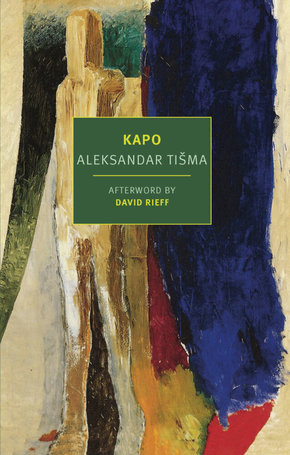
| Verlag | NYRB Classics |
| Auflage | 2021 |
| Seiten | 312 |
| Format | 13,0 x 20,2 x 1,5 cm |
| Gewicht | 331 g |
| Artikeltyp | Englisches Buch |
| EAN | 9781681374390 |
| Bestell-Nr | 68137439UA |
A devastating novel about the attrocities of WWII, and the unspeakable things people did to survive, by one of Yugoslavia's great literary voices.
The Book of Blam, The Use of Man, Kapo: In these three unsparing novels the Yugoslav author Aleksandar Ti ma anatomized the plight of those who survived the Second World War and the death camps, only to live on in a death-haunted world. Blam simply lucked out and can hardly face himself in the mirror. By contrast, the teenage friends in The Use of Man are condemned to live on and on while enduring every affliction. Kapo is about Lamian, who made it through Auschwitz by serving his German masters, knowing that at any moment and for any reason his special status might be revoked.
But the war is over now. Auschwitz is in the past. Lamian has settled down in the Bosnian town of Banja Luka, where he has a respectable job as a superintendent in the railyard. Everything is normal enough. Then one day in the paper he comes on th e name of Helena Lifka, a woman like him a Yugoslav and a Jew he raped in the camp. Not long after he sees her, aged and ungainly, Lamian is flooded with guilt and terror.
Kapo, like Ti ma s other great novels, is not simply a document or an act of witness. Ti ma s terrible gift is to see with an artist s dispassionate clarity how fear, violence, guilt, and desire whether for life, love, or simple understanding are inextricably knotted together in the human breast.
Rezension:
A book whose darkness, mercilessness, and intensity cannot be suppressed. Neue Zürcher Zeitung
A brooding, curiously prescient saga. . . . A probing, exceptional study of a man as both victim and tormentor, and more. Kirkus Reviews
[Kapo is] the last and best book in the Novi Sad trilogy. . . . [Ti ma s] fiction is merciless, bereft of relief or respite. It is the work of a documentarian accustomed to confronting atrocity without allowing himself the indulgence of looking away. Becca Rothfeld, Sidecar, The New Left Review
An unblinking portrayal of evil for which there is no penance, from whose guilt there is no relief, and for whose knowledge the only escape is death. . . . Kapo is a palimpsest of horrible knowledge, obtained through unbearable means, and its unique value, even greater than Ti ma s other novels, lies in the rarity and moral necessity of its knowledge, delivered as painfully transparent art. David Auerbach, Apofenie
